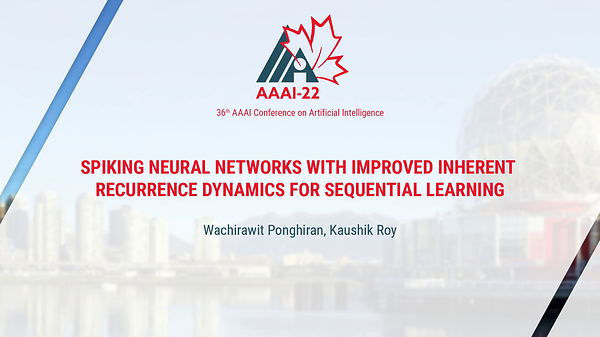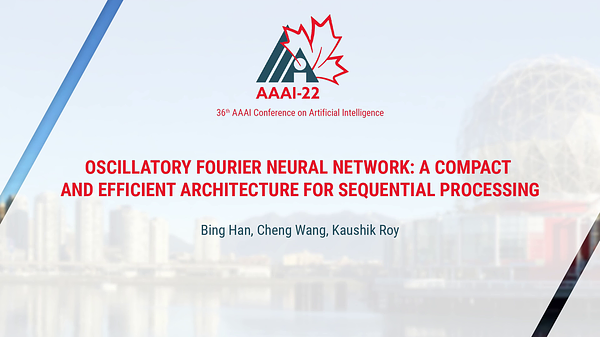Kaushik Roy
dataset
language models
transformers
bias
question generation
low resource languages
text summarization
mental health
compression
ai for good
cv
applications
toxicity
conversation ai
ml
9
presentations
1
number of views
SHORT BIO
Kaushik Roy is the Edward G. Tiedemann, Jr., Distinguished Professor of Electrical and Computer Engineering at Purdue University. He received his BTech from Indian Institute of Technology, Kharagpur, PhD from University of Illinois at Urbana-Champaign in 1990 and joined the Semiconductor Process and Design Center of Texas Instruments, Dallas, where he worked for three years on FPGA architecture development and low-power circuit design. His current research focuses on cognitive algorithms, circuits and architecture for energy-efficient neuromorphic computing/ machine learning, and neuro-mimetic devices. Kaushik has supervised 100 PhD dissertations and his students are well placed in universities and industry. He is the co-author of two books on Low Power CMOS VLSI Design (John Wiley & McGraw Hill).
Presentations

PIXELS: Progressive Image Xemplar-based Editing with Latent Surgery
Shristi Das Biswas and 4 other authors

SAP: Corrective Machine Unlearning with Scaled Activation Projection for Label Noise Robustness
Sangamesh Dhanayya Kodge and 3 other authors

Eigen Attention: Attention in Low-Rank Space for KV Cache Compression
Utkarsh Saxena and 3 other authors

Prompt-Based Bias Calibration for Better Zero/Few-Shot Learning of Language Models
Kang He and 2 other authors

Segmented Recurrent Transformer: An Efficient Sequence-to-Sequence Model
Yinghan Long and 2 other authors

Continual Learning with Scaled Gradient Projection
Gobinda Saha and 1 other author

Learning to Automate Follow-up Question Generation using Process Knowledge for Depression Triage on Reddit Posts
Anmol Agarwal and 6 other authors

Spiking Neural Networks with Improved Inherent Recurrence Dynamics for Sequential Learning
Wachirawit Ponghiran and 1 other author

Oscillatory Fourier Neural Network: A Compact and Efficient Architecture for Sequential Processing
Bing Han and 2 other authors